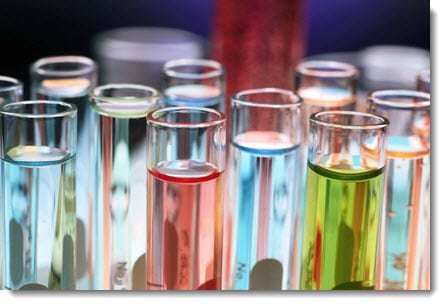Research team develops new fuel cell catalyst
May 13, 2014Researchers develop breakthrough catalyst that uses 85% less platinum
Researchers from the Argonne National Laboratory and the Lawrence Berkeley National Laboratory have developed a new type of fuel cell catalyst that reportedly boasts of more than 30 times the catalytic activity than its conventional counterparts. The new catalyst is also expected to be less expensive than conventional models because it uses 85% less platinum. Developing such a catalyst has long been the goal of the fuel cell and science communities for some time. Developing low cost, highly effective catalysts could make fuel cells significantly more attractive than they already are.
Catalyst formed using nanotechnology
The research team has developed the new catalyst through the use of nanotechnology. The team combined platinum and nickel nanoparticles to make an alloy. Exposure to oxygen over a two week period dissolved the alloy’s nickel interior, leaving a sort of framework. This nanoframe is a hollow structure whose surface has been coated in platinum particles and immersed in an ionic liquid. Essentially, the team created a catalyst that uses less platinum, yet is more efficient and durable than catalysts that use the normal amount of platinum.
Cost of fuel cells continues to prohibit their adoption
The reason researchers have been looking to reduce the need for platinum in fuel cell catalysts has to do with cost. Platinum is one of the most expensive materials in the world and its use has made fuel cells very costly. The cost of fuel cells is somewhat notorious among those interested in renewable energy. High costs mean limited adoption, and fuel cells have operated on the outskirts of the clean energy sector for several years. With fuel cells becoming prominent in transportation, reducing the cost of these energy systems, as well as improving their efficiency, has become a priority.
Researchers have high hopes for their new catalyst
Currently, the new fuel cell catalyst is still in the early stages of its development. The research team must continue experimenting with the catalyst in order to better understand its capabilities and limitations. The team does believe that it has promise, however, as it exists as one of the few new fuel cell catalysts that is relatively stable, cost effective, and efficient.


 HFN News is your leading source for fresh hydrogen and renewable energy updates. Amid the fast-paced growth of hydrogen companies, we provide top-notch news and insights about this exciting sector. Our coverage spans from hydrogen cars to global sustainable initiatives, and we highlight the latest in green jobs and developing hydrogen hubs. We invite you to share your local hydrogen news and explore today’s renewable energy job listings on our site. Thanks for choosing HFN News as your trusted guide to the hydrogen and renewable energy world!
HFN News is your leading source for fresh hydrogen and renewable energy updates. Amid the fast-paced growth of hydrogen companies, we provide top-notch news and insights about this exciting sector. Our coverage spans from hydrogen cars to global sustainable initiatives, and we highlight the latest in green jobs and developing hydrogen hubs. We invite you to share your local hydrogen news and explore today’s renewable energy job listings on our site. Thanks for choosing HFN News as your trusted guide to the hydrogen and renewable energy world!